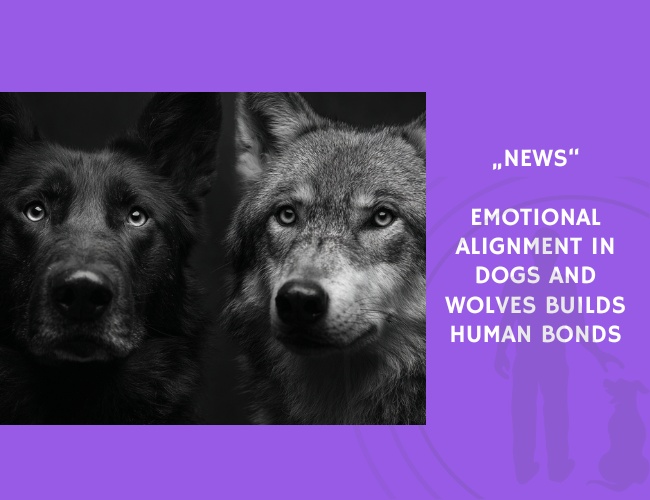Emotional sharing is a key adaptive trait in animals, allowing rapid responses to changing environments and strengthening social cohesion. A review published in February 2020 in Animals explored how rapid mimicry (RM) and yawn contagion (YC) in dogs and wolves provide insight into the origins of inter-species emotional bonds, especially between dogs and humans.
Involuntary synchronization, such as mimicking another’s movements or contagious yawning, fosters social alignment. Studies have shown that RM and YC are socially modulated, occurring more frequently among individuals with strong social bonds. These behaviors allow individuals to share affective states, forming the foundation for emotional contagion.
Dogs are a particularly suitable model for this research because they engage in both intraspecific (dog–dog) and interspecific (dog–human) emotional sharing. Evidence suggests that their capacity for empathic predisposition is evolutionarily rooted in canids. Wolves display similar intra-species synchronization, supporting the idea that emotional alignment has deep evolutionary origins and was further shaped during domestication.
The findings suggest that mimicry and shared affective states within dog–dog and wolf–wolf relationships provided the building blocks for the unique emotional intimacy that characterizes the dog–human bond. This capacity for emotional engagement enhances cooperation, affiliation, and the survival benefits of strong social ties.
Source: Palagi, E., & Cordoni, G. (2020). Intraspecific Motor and Emotional Alignment in Dogs and Wolves: The Basic Building Blocks of Dog–Human Affective Connectedness. Animals, 10. Journal: Animals. Authors: Elisabetta Palagi, Giada Cordoni.










